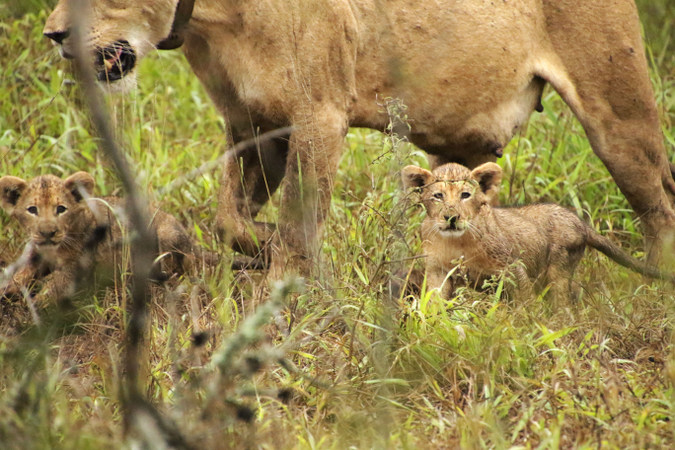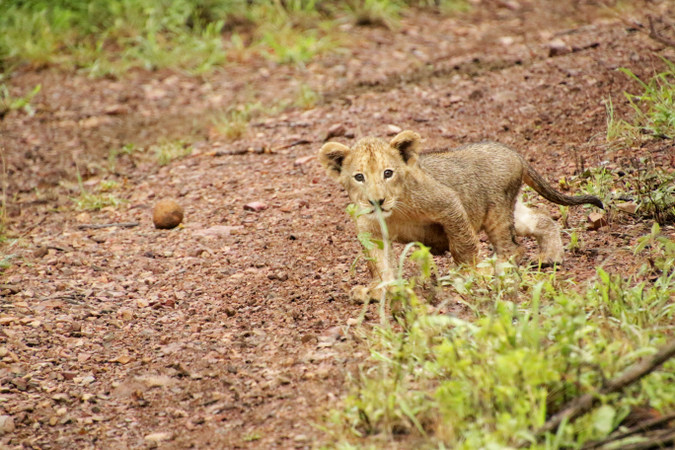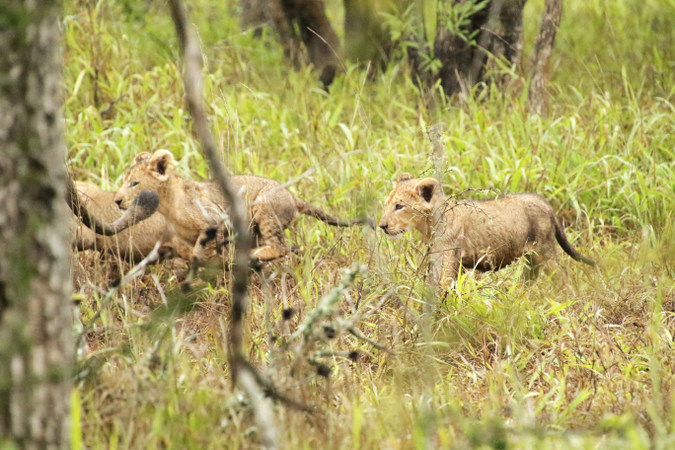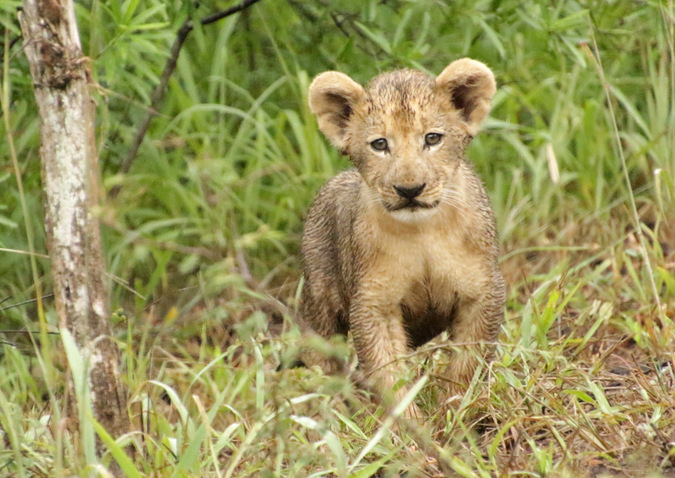
Media release by Blood Lions Campaign
In May 2017 a pride of three lions (one male and two females) arrived at their new home – Somkhanda Community Game Reserve in northern KwaZulu-Natal, South Africa, from Phinda Private Game Reserve. This translocation was carried out as part of Phinda’s lion management strategy, supported by Empowers Africa and inspired by the powerful feature documentary – Blood Lions®.
The lions were released from the boma into the greater reserve in August 2017 and have roamed freely over approximately 12,000 acres ever since.
“Soon after their release the male was seen mating with one of the females and we suspected she was pregnant,” said Wildlands’ Strategic Manager of Conservation, Dave Gilroy. “The teams then saw some signs that indicated the female had given birth and we have been anxiously waiting for her to bring the cubs out into the open. Our monitoring team finally had their first glimpse of the female with her cubs (and had a camera in hand) and we can confirm that there are four healthy and happy cubs in the litter. These cubs are the first wild lions born on Somkhanda in the past 50 plus years since lions were persecuted and exterminated from the area.”

“This introduction was supported and guided by the Emwokweni Community Trust and Gumbi Community’s vision to create a premier Big 5 game reserve on their land,” said Wildlands CEO and Executive Producer of the groundbreaking film, Blood Lions®, Dr Andrew Venter. “It has been a privilege to work with the Gumbi community to enable the successful re-introduction of lion onto their ancestral lands. Their vision and courage has been inspirational and sets a real example of how a deep rural community can use its land assets sustainably to stimulate local economic development. The Somkhanda lion cubs demonstrate that it is possible to expand lion range in South Africa, through real grass root conservation efforts, rather than the immoral and unethical approach adopted by South Africa’s lion breeders, who argue that they breed for conservation, yet the reality is that they simply breed for profit.”
“As one of the founders of Somkhanda I am very excited about the news of the cubs,” said Nathi Gumbi, a member of the Gumbi tribe and Wildlands’ Strategic Manager for Community Engagement. “The female will now play her role as a mother and the male will guard his cubs and their territory, keeping his family safe. This is a good example of how animals are actually similar to us as human beings. We share our lives with nature. Our ancestors and my community have welcomed the lions and we are very proud.”

“Blood Lions fully supports the conservation of lions in the wild,” commented Pippa Hankinson, Producer of Blood Lions®. “When one sees a great example of lion conservation in a natural area, such as the Somkhanda lion translocation project, it once again raises the question as to why South African decision-makers continue to support the captive breeding and canned hunting of lions? As lion ecologists repeatedly state, captive-bred lions have no conservation value and attempts to reintroduce these animals into natural areas is not a viable conservation option. When visiting South Africa, one cannot surpass the incredible experience of seeing lions roaming free in the wild, as opposed to seeing them in small enclosures with no possibility of ever leading the wild lives they were born to live. There is a rapidly growing global movement away from all forms of wildlife interactive tourism, and this can be measured by the support of the Blood Lions ‘Born to Live Wild’ tourism campaign and pledge.”
“We cannot thank our loyal donors and partners enough for their support in making this translocation possible,” said Venter. “We must extend huge thanks to Empowers Africa, the Emvokweni Community Trust, Blood Lions®, Different.org, WildlifeACT, Jonsson Workwear and Phinda Private Game Reserve.”
You also have a chance to contribute, no matter how big or small, to enable a safe and secure home for this pride of lions. If you would like to donate or potentially Adopt-the-Pride contact us via info@wildtrust.co.za or visit our support page.

To comment on this story: Login (or sign up) to our app here - it's a troll-free safe place 🙂.![]()






